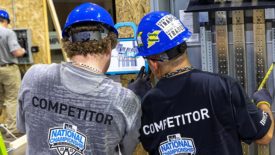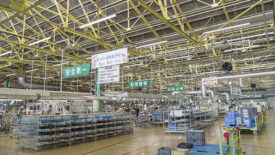Home » Keywords: » error-proofing
Items Tagged with 'error-proofing'
ARTICLES
Manufacturing Software
MES Software Improves Assembly
A Tier 1 automotive supplier passes safe launch in just two weeks by digitizing assembly processes.
April 23, 2024
Never miss the latest news and trends driving the manufacturing industry
Stay in the know on the latest assembly trends.
JOIN TODAY!Copyright ©2024. All Rights Reserved BNP Media.
Design, CMS, Hosting & Web Development :: ePublishing




.jpg?height=168&t=1717712269&width=275)






